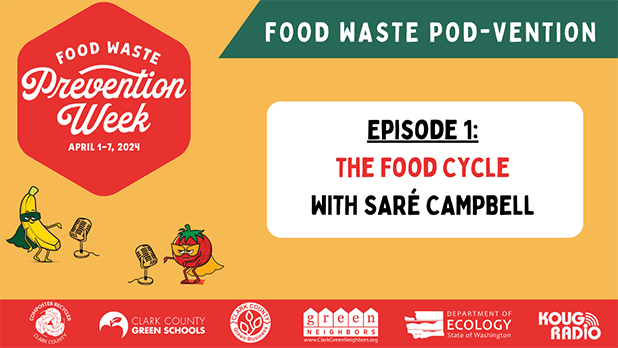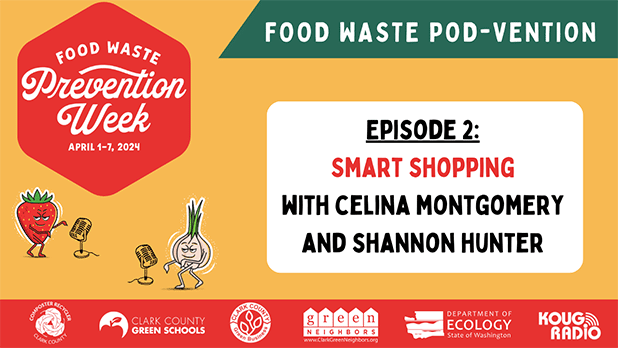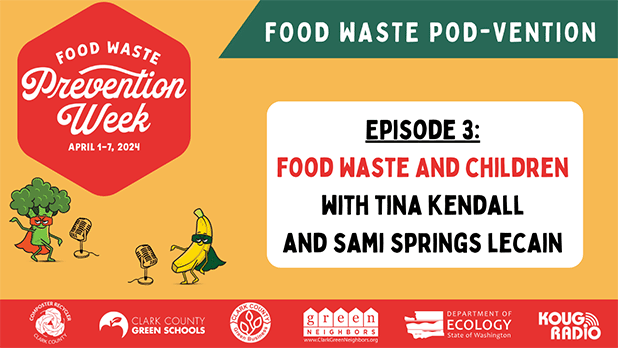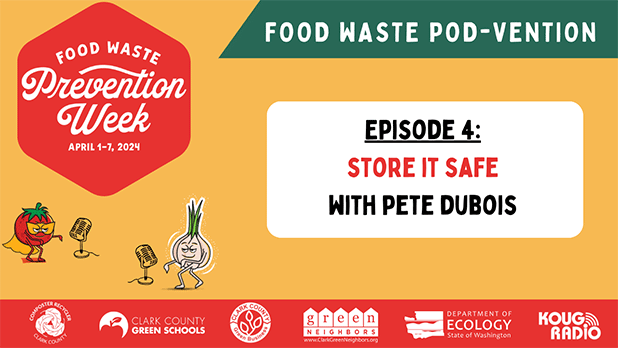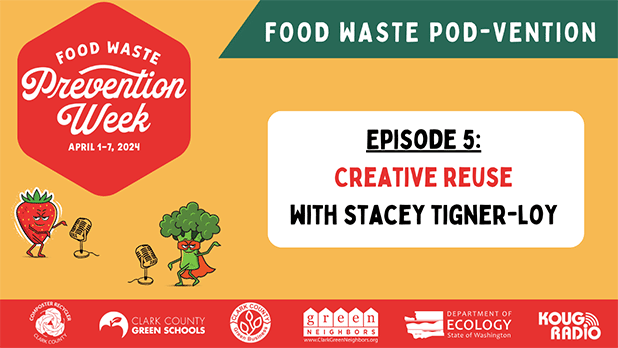Throwing out food = throwing out money
We've all been there with moldy bread, slimy tomatoes, freezer burned meat, and the list goes on. If we had just been more realistic about what needed to be eaten versus what we wanted to eat, maybe we wouldn't have had to throw away so much food. The average household could save up to $3,000 per year by preventing food waste!
Read more Food waste podcast We Compost Community Hub
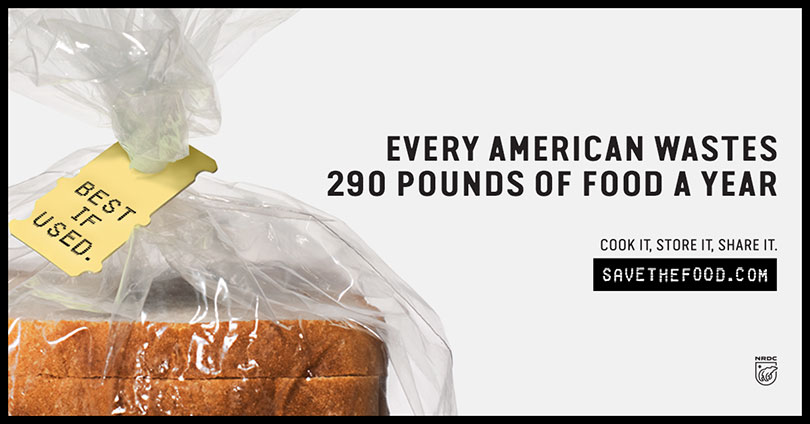
Leftovers again?!
Leftovers were not a category of food in the 19th century until the arrival of the refrigerator, as using up every bit of food was necessary and a part of every day life. It wasn’t until the country started to prosper and people felt a sense of abundance with food available at every corner that leftovers became a bit of a joke, and dinnertime was met with grumbles if food made a repeat appearance.
Food insecurity
Many people experience food insecurity in our own state with 1 in 10 Washingtonians consistently struggling with hunger. In addition, 1 in 6 Washington kids live in a household that faces challenges in putting enough food on the table.
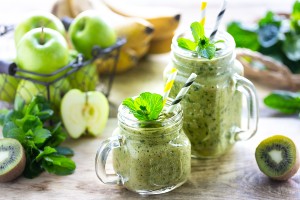
What you can do to waste less food
There are many opportunities to learn, donate and take the next steps in shopping your shelves and eating what you have. Read below for some helpful tips excerpted from Waste Free Kitchen Handbook by Dana Gunders. Start with small, simple steps to build upon.



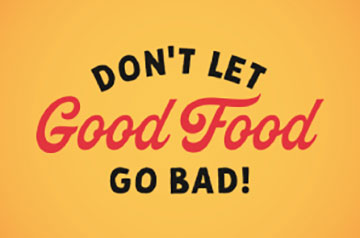
 Align your grocery shopping to the reality of your week. Easier said than done, but making a meal plan, then a
Align your grocery shopping to the reality of your week. Easier said than done, but making a meal plan, then a 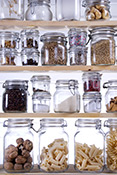 To avoid wasting perishable food, it is often necessary to get creative! Have some staples on hand to help use up these more date-sensitive foods. Use cooking oils, dried herbs, pasta, rice, beans, flour, frozen vegetables or meat with your leftover perishables to make something creative. Example dishes include fried rice, soup, a stir fry, curry, or a shepherd's pie. Using your perishables as a starting point and having these staples in your kitchen will help you be successful in creating a delicious meal while saving money by avoiding food waste.
To avoid wasting perishable food, it is often necessary to get creative! Have some staples on hand to help use up these more date-sensitive foods. Use cooking oils, dried herbs, pasta, rice, beans, flour, frozen vegetables or meat with your leftover perishables to make something creative. Example dishes include fried rice, soup, a stir fry, curry, or a shepherd's pie. Using your perishables as a starting point and having these staples in your kitchen will help you be successful in creating a delicious meal while saving money by avoiding food waste.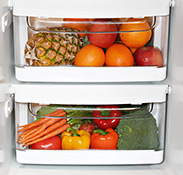 How well do you know your refrigerator and what it is capable of? It was designed to keep foods at optimal freshness when used correctly. Even in the fridge, heat rises, so keep in mind that the most perishable items, like meat and fish, should be stored on the bottom shelf. Consider placing drinks, snacks, yogurt, and items to eat soon in plain view on a top shelf. As the door is the warmest place, it’s really only meant for condiments, nothing too perishable. Click for a
How well do you know your refrigerator and what it is capable of? It was designed to keep foods at optimal freshness when used correctly. Even in the fridge, heat rises, so keep in mind that the most perishable items, like meat and fish, should be stored on the bottom shelf. Consider placing drinks, snacks, yogurt, and items to eat soon in plain view on a top shelf. As the door is the warmest place, it’s really only meant for condiments, nothing too perishable. Click for a 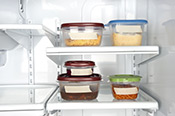
 Whether you only used a half head of broccoli in a dish and aren’t sure what to do with the remaining half, have restaurant take-out containers lurking in the fridge, or a half pot of soup from a few days ago, various items get parked in our fridge.
Whether you only used a half head of broccoli in a dish and aren’t sure what to do with the remaining half, have restaurant take-out containers lurking in the fridge, or a half pot of soup from a few days ago, various items get parked in our fridge.